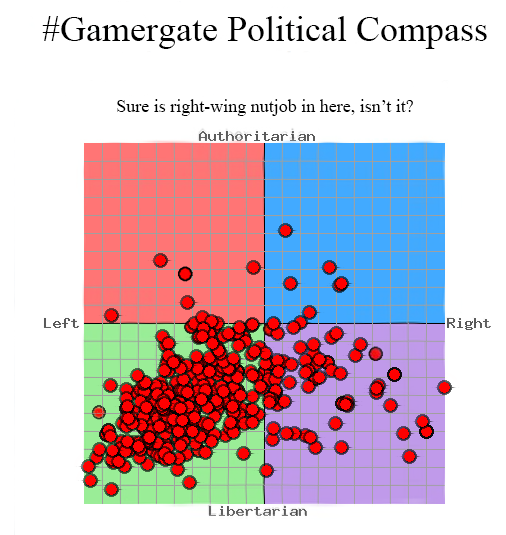Loyal readers will remember I wrote a think piece arguing that gamergate—the loose grouping of internet gamers seen by its critics as misogynistic and by its advocates as a campaign for ethics in gaming journalism—would lose its battle against the social justice warriors (SJWs) who largely run the media, particularly games journalism. This might still be true, but a piece from Ed West at the Spectator makes me much less sure of my argument. Ed points out that gamergate—where the gamer masses are using letter-writing campaigns to get advertisers to drop support for websites like Gawker—is only the latest in a string of social justice setbacks include the Lord Freud 'scandal' and the bid to get David Cameron to wear a feminist t-shirt.
What has happened to social justice warriors recently? Every campaign seems to fail, the latest being a cack-handed attempt to police Twitter in order to win the Gamergate saga (turn to p194 for details). Gamergate is one of those things that a couple of years ago would have been resolved quickly, going into the narrative as part of the great struggle against the ‘isms’. Instead it goes on and on, and SJWs seem to be losing the battle.
He reckons that the ongoing decline of traditional news sources is giving the SJWs less of a grip on the organs of opinion-formation, democratising opinion across the internet. I'm not so sure, indeed I think the internet is rather a boon to the more virulent strains of modern social justice talk. What's more, if we really are seeing a turning point in the culture war, the small changes in internet access over the past couple of years aren't going to be able to explain it.
But I do think he has a good point about the changes of the past 20 years:
Compare the situation today with that of 20 years ago, during the greatest social justice warrior victory of all, the controversy over The Bell Curve – a big event in American and by default British cultural life. While the scientific community said one thing about Charley Murray and Richard Herrnstein’s book on intelligence, the political-media elite said another, and the public followed the latter’s lead. If The Bell Curve was published today it would be much harder for the modern-day Congregation for the Doctrine of the Faith to attack it.
The Bell Curve ‘war’ was an important issue in itself – as an opportunity to counter America’s growing inequality was lost. But it was also significant because it confirmed the idea that anyone who came to a controversial conclusion (in this case supposedly ‘racist’) could be ostracised, name-called and in the current parlance ‘shown the door’. That sort of ideologically-justified bullying is a key tactic of the social justice warrior movement, but when exposed as such can work against them. The nice left, after all, don’t like to be seen siding with self-appointed policemen of debate.
I recommend reading the whole thing.








